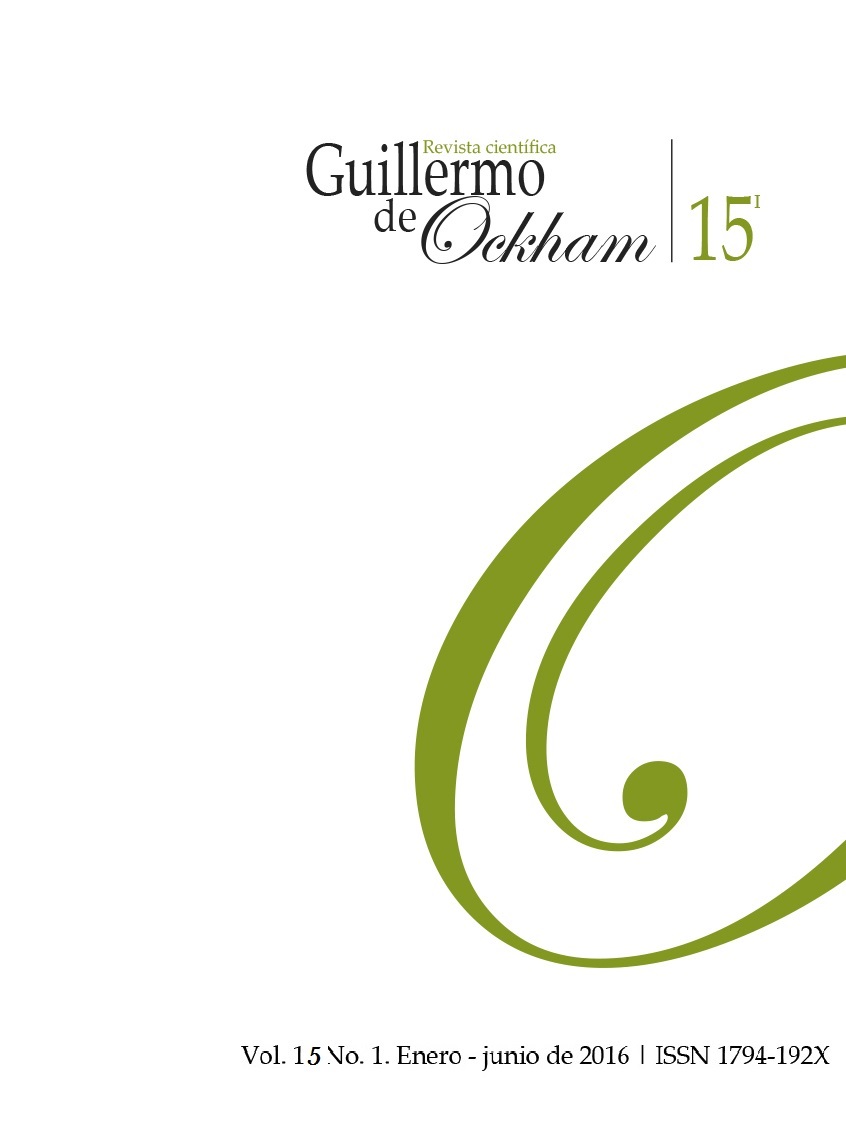The Revista Guillermo de Ockham provides an immediate and open access to its content, based on the principle of offering the public a free access to investigations to provide a global interchange of knowledge.
Unless otherwise established, the contents of this journal has a license with Creative Commons Attribution-NonCommercial-NoDerivatives 4.0 International (CC BY-NC-ND 4.0) http://creativecommons.org/licenses/by-nc-nd/4.0/
- Attribution: You must give appropriate credit, provide a link to the license, and indicate if changes were made. You may do so in any reasonable manner, but not in any way that suggests the licensor endorses you or your use.
- NonCommercial: You may not use the material for commercial purposes.
- NoDerivatives: If you remix, transform, or build upon the material, you may not distribute the modified material.
- No additional restrictions: You may not apply legal terms or technological measures that legally restrict others from doing anything the license permits.
Abstract
References
Cabanchik, S. (2010). Wittgenstein: Una introducción. Buenos Aires.: Editorial Quadrata.
García-Carpintero, M. (1996). Las palabras, las ideas y las cosas. Una presentación de la filosofía del lenguaje. Barcelona: Ariel.
Hacker, P. M. (1986). Insight and illusion. Themes in the Philosophy of Wittgenstein Oxford: Clarendon Press.
Kripke, S. (1989).Wittgenstein: reglas y lenguaje privado. México: UNAM.
Mounce, H. O. (1993). Introducción al <
Orlando, E. (2006). Wittgenstein y Russell. Continuidades y diferencias. UBA-CONICET. Recuperado de:
Satne, G. (2005). El argumento escéptico: de Wittgenstein a Kripke. Buenos Aires: Serie tri grama ediciones,
Wittgenstein, L. (1999). Tractatus logico-philosophicus. Madrid: Alianza Editorial
Wittgenstein, L. (1988). Investigaciones filosóficas. Barcelona: Crítica-Grijalbo.
































